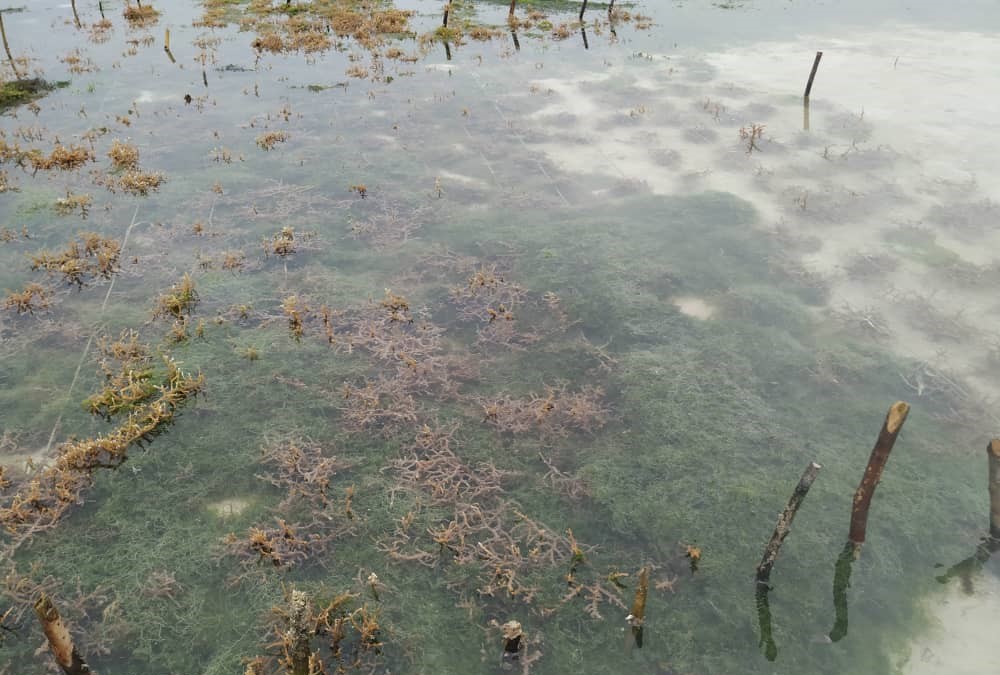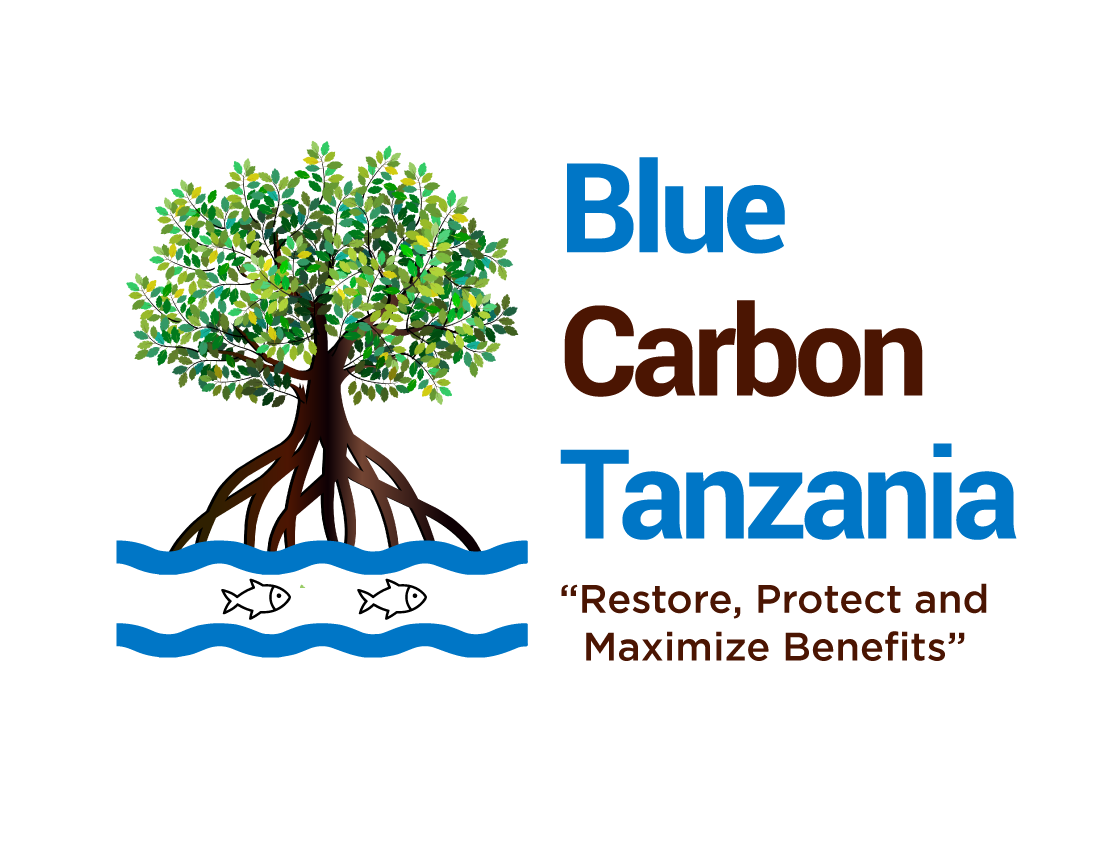Seaweed Farming
Seaweed Farming
Seaweed Farming is an essential activity for the coastal women in Tanzania, contributing to the daily income and livelihood. The common seaweed farmed include the two red macroalgae ‘spinosum’ and ‘cottonii’). The women groups culture seaweed using the bottom pegs and lines which are laid in near-shore, and wait for 30 to 45 days until harvested. Upon harvesting the products are sold after drying and sold to consumers. At the Kwale island the production is affected by lack of production tools, insufficient capital, limited technology application and poor market linkage. Blue Carbon Tanzania work with these coastal women to pilot the new farming technique using the floating raft technologies to enable farming in deep water to counteract the effect of climate change causing the warming of nearshore waters.

Our work aims to initiate microcredit and insurance schemes to support women seaweed farmers in these areas, to ensure they are adequately covered against the increasing risks of warming nearshore waters caused by climate change, improving their farming tools and technology. The crediting and insurance schemes for these local women are vital to ensure the sustainability of seaweed farming. We are looking forward to improving the resilience of the women local seaweed farmers, linking them with markets and teaching them entrepreneurship business management skills. Seaweed carries essential nutrients for good health and is an important raw material that can be used to produce value-added products, biodegradable fishing nets and biochar as a sustainable fertilizer containing more potassium and calcium derived from the ocean.
